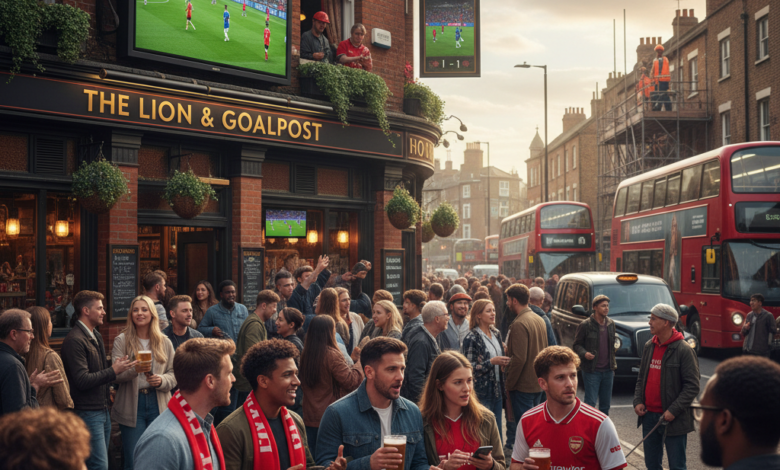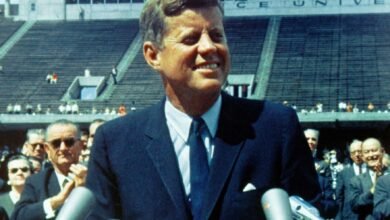
A Historical Perspective: Football’s Roots in British Culture
The history of football in Britain is a fascinating narrative that reflects the evolution of society itself. Its roots can be traced back to medieval times when various forms of the game were played across the nation, often involving large groups of players and little regulation. These early iterations highlighted the communal nature of football, bringing together villagers in spirited competitions that established the foundations of local identity.
The establishment of standardized rules in the 19th century marked a crucial turning point in the game’s evolution. The formation of football clubs, such as Sheffield FC in 1857, and the intervention of The Football Association in 1863 played significant roles in formalizing the sport. These developments fostered a sense of organization and community among fans and players, subsequently giving rise to local and national leagues that would further entrench football into British culture.
As the 20th century approached, football began to carve out a substantial space in the collective consciousness of the British population. Iconic matches, such as the 1966 World Cup Final, where England secured their first title, ignited unprecedented national pride. Legendary players like Sir Stanley Matthews and Bobby Moore became not only sports icons but also symbols of British excellence, further bridging the sport with national identity.
Football’s omnipresence in British life is evident not just in the sport itself but also in its capacity to generate a shared sense of belonging. The local pub matches, community tournaments, and league followings unite people across generations, transcending social divides and creating lasting bonds. Today, the legacy of football as a key pillar of British culture remains steadfast, encapsulating the spirit of competition, camaraderie, and pride that continue to resonate with fans nationwide.
Football as a Social Connector: Bridging Communities
Football is not merely a sport in Britain; it is a profound social connector that unites individuals from various backgrounds. The communal experience of watching a match in a local pub often serves as a vibrant backdrop for social interactions. The collective anticipation before a game and the jubilant cheers or mournful groans during the match create a shared atmosphere that fosters relationships among friends and strangers alike. This sense of camaraderie is evident whether in packed stadiums or crowded taverns, where discussions about strategies, player performances, and team prospects are commonplace.
Attending live matches with friends and family further strengthens these social bonds. Families often pass down allegiance to local clubs, creating a tradition that resonates across generations. The excitement of match days transforms ordinary weekends into communal celebrations, where individuals rally together, donning team colors and chanting in unison. Such experiences cultivate a belonging that transcends socio-economic divisions, forming a bridge between diverse communities.
Moreover, football-centric events, such as community tournaments and charity matches, serve as instrumental platforms for fostering inclusiveness. Initiatives like these are designed to engage the wider community, promoting interaction among different age groups, cultures, and backgrounds. These gatherings not only enhance the local football scene but also contribute to a sense of community pride and interconnectedness. Such initiatives highlight the sport’s potential to drive social change, illustrating how football can be a powerful vehicle for positive community interaction.
Through these various means, football emerges as more than a game; it is a vital thread that weaves individuals together, creating a tapestry of shared experiences and collective identity across British society. The sport continues to play a pivotal role in enriching the social landscape, revealing its capacity to unite and connect individuals in a meaningful way.
Media Influence: Football in the News and Online
Football has established a significant presence in both traditional media and the ever-evolving digital landscape. Coverage of the sport routinely dominates headlines in newspapers, broadcast news, and dedicated sports channels. Major clubs, ongoing matches, and player transfers not only feature prominently but also influence the broader cultural narrative surrounding sports. The fact that football garners such attention reflects its capacity to connect with millions, resonating across diverse demographics.
In the realm of television, reputable sports shows often allocate substantial airtime to discuss football-related topics, offering analysis, expert opinions, and reactions to recent developments. Such platforms play a crucial role in shaping how fans perceive the sport, and they often amplify ongoing debates regarding performance, management decisions, and player conduct. Consequently, football-related discussions can spill over into mainstream news agendas, affecting public sentiment and political discussions.
Online platforms amplify this dynamic, with social media offering a space for real-time engagement. Football clubs, players, and fans utilise platforms like Twitter, Facebook, and Instagram to share updates, opinions, and highlights, fostering an interactive community. The viral nature of social media can rapidly escalate football discussions, where a single incident—such as a controversial referee decision or a notable goal—can spark widespread conversation, generating immense online traction.
This proliferation of football-related content affects public discourse significantly. Local and global narratives are often shaped around the sport, as issues like player activism and club ownership become focal points for larger societal discussions. Moreover, football’s intertwined nature with celebrity culture showcases its influence beyond the pitch, where footballers become figures of prominence in fashion, philanthropy, and social initiatives. The inextricable link between football and media thus solidifies the sport’s role as a cornerstone of British daily life, continually shaping conversations across diverse platforms.
The Economic Impact: Football’s Role in British Economy
Football is not merely a sport in the United Kingdom; it is a substantial economic engine that contributes significantly to the nation’s financial wellbeing. The Premier League, as one of the most lucrative football leagues globally, plays a pivotal role, generating billions of pounds annually through television rights, sponsorship deals, and merchandise sales. In the fiscal year 2021-2022, Premier League clubs collectively reported revenues exceeding £5 billion, underscoring the league’s considerable influence within the UK economy.
Furthermore, the economic impact of football extends beyond direct financial contributions. Match days represent a critical driver for local economies, with clubs attracting tens of thousands of spectators to each game. These events stimulate local business by increasing sales in hotels, restaurants, and retail outlets. In fact, a study indicated that each home match could generate up to £2.5 million for the local economy, reflecting how football serves as a catalyst for economic activity in various sectors.
Additionally, football clubs contribute significantly to job creation. They employ thousands of individuals directly and support further jobs in the surrounding community through ancillary services. Roles range from player and coaching staff to administrative positions, ticket sales, and stadium operations, indicating the extensive workforce reliant on the sport. The broader industry, which includes broadcasting, merchandise production, and hospitality, signifies that football’s influence permeates various employment sectors.
On a global scale, football enhances Britain’s international trade and tourism. Major tournaments and friendly matches attract international visitors, promoting the UK as a premier travel destination. Such events lead to an influx of tourism revenue, showcasing football’s role not just as a sport but as a vital contributor to Britain’s economic framework.




















